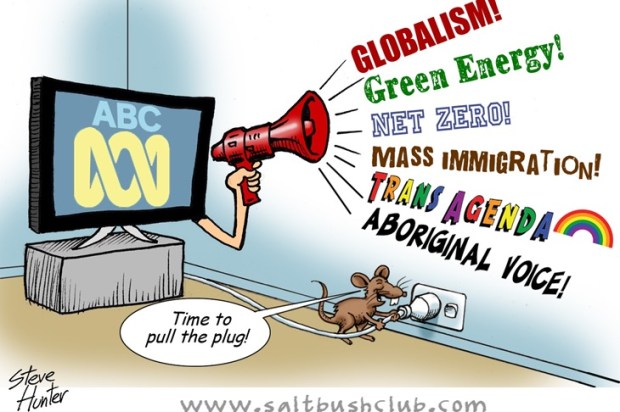It has been fascinating to watch how different countries have dealt with the Covid-19 pandemic. Some nations have been nothing short of inspirational while the responses of others, the United States among them, have been disastrous.
Especially in democratic countries, these responses represent a profound turning point, the impact of which will be felt for decades in Australia and throughout the world.
In a nutshell, this timely book, published by the nimble Brisbane-based Connor Court, addresses the dramatic impact of recent governmental measures on our fundamental rights, particularly freedom of movement and association, freedom of speech and expression, as well as the putative right to privacy. Importantly, it also focuses on how, in the future, we might best protect our fundamental freedoms.
Ably edited by Dr Augusto Zimmermann and Joshua Forrester, Fundamental Rights in the Age of Covid-19 is a special edition of the Western Australian Jurist, a yearly peer-reviewed academic publication of the Western Australian Legal Theory Association (‘WALTA’).
As it happens, Augusto Zimmermann is not only WALTA president, but editor-in-chief of the Western Australian Jurist. The book’s coeditor, Joshua Forrester, has written extensively on the subject of freedom of speech and the implied constitutional freedom of political communication.
While in their helpful introduction, and throughout the book, the editors use the term Covid-19, they have allowed other contributors to refer to SARS-CoV-2 as they wish. Some authors refer to coronavirus and others to the Wuhan virus, which suggests a political agenda to some degree. We’re still not sure if Wuhan actually was ground zero, but that’s a matter for another day.
Dr Zimmermann and Joshua Forrester have gathered a fine list of contributors to address the dramatic impact of recent governmental measures and how best to protect fundamental rights and freedoms.
Of the many impressive contributions to this seminal book of essays, a highlight is by this magazine’s David Flint. He argues that ‘the Australian government’s response to the coronavirus was based on an overreaction that failed to pay due regard to the best available evidence’. Flint maintains that many of the responses of our political authorities were unnecessary and disastrously counterproductive, proving costly to millions of Australians.
Another key chapter is by James Allan, also a columnist with The Spectator Australia. He exposes how state governments in particular mishandled their responses to the coronavirus, significantly infringing civil liberties and dramatically expanding the government’s role with no palatable route out of this lamentable situation. Allan predicts that such measures will be seen as one of the worst public policy fiascos of the century.
In his well-argued contribution, William Wagner usefully canvasses how certain state governors in the United States saw Covid-19 as an opportunity to expand their powers and ignore constitutional constraints, autocratically issuing edicts that violated fundamental human rights and undermined the rule of law.
With specific regard to Western Australia, Anthony Gray examines whether that state’s border restrictions in response to Covid-19 are consistent with Section 92 of the Australian Constitution, which provides that trade, commerce and intercourse among the states shall be absolutely free.
Rocco Loiacono, provides a dramatic exposure of the ‘dictatorship of the health bureaucracy’ whereby via government decree, Covid-19 has been used to undermine our fundamental rights and freedoms. As he points out, recent events have revealed the potential for health officials to enact oppressive policies that exert unreasonable control over our lives. This could have, argues Loiacono, very serious implications for important principles such as the right to informed consent, which is fundamental in the administration of any medical treatment.
After listing the measures imposed on people to allegedly combat the virus, Gabriël A. Moens characterises such restrictions as ‘deeply paternalistic in nature, having an enormous and deleterious effect on the rights of people, including unintended consequences for the protection of their own health’.
Finally, Monika Nagel cogently argues that while globalisation may have worked well economically and politically since the early 1980s, it failed to effectively respond to the health crisis represented by Covid-19.
Noting the decline of moral values along with the rise of identity politics, Nagel argues that the focus of political authorities and the media should now shift towards protecting our freedoms.
The release of Fundamental Rights in the Age of Covid-19 confirms the Western Australian Jurist as a leading publication in the field of jurisprudential thought and legal theory.
As Augusto Zimmermann and Joshua Forrester correctly conclude, it is without doubt that many governmental measures in this age of Covid-19, both here and overseas, have threatened fundamental rights and undermined what it means to live in a democracy under the rule of law, and continue to do so.
Because this collection of highly original essays provides a significant contribution to the understanding of the subject, Fundamental Rights in the Age of Covid-19 should be essential reading for citizens who value our freedoms and reject political autocracy. Given how divisive are the issues grappled with, it is likely to have a strong niche market.
In this intriguing book about rights, one element that might have been stressed more strongly is the notion of responsibilities. Some parallels with our current situation are the food rationing and blackouts imposed on UK cities during the second world war. These clearly infringed fundamental rights in order to protect society by sharing the available resources and minimising the impact of aerial bombing.
Fundamental Rights in the Age of Covid-19 edited by Augusto Zimmerman and Joshua Forrester is available from Connor Court Publishing.
Professor Ross Fitzgerald is the author of seven Grafton Everest comedies, most recently The Dizzying Heights, co-authored with Ian McFadyen, and Going Our Backwards, which was shortlisted for the Russell Prize for Humour Writing. Both are published by Hybrid Melbourne.
Got something to add? Join the discussion and comment below.
Get 10 issues for just $10
Subscribe to The Spectator Australia today for the next 10 magazine issues, plus full online access, for just $10.


























Comments
Don't miss out
Join the conversation with other Spectator Australia readers. Subscribe to leave a comment.
SUBSCRIBEAlready a subscriber? Log in